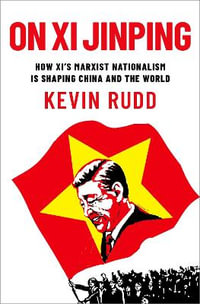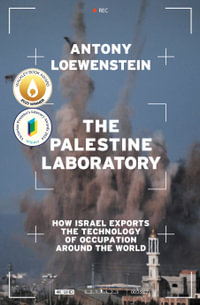The U.S. government's power to categorize individuals as terrorist suspects and therefore ineligible for certain long-standing constitutional protections has expanded exponentially since 9/11, all the while remaining resistant to oversight. Crimes of Terror: The Legal and Political Implications of Federal Terrorism Prosecutions provides a comprehensive and uniquely up-to-date dissection of the government's advantages over suspects in criminal prosecutions of terrorism, which are driven by a preventive mindset that purports to stop plots before they can come to fruition. It establishes the background for these controversial policies and practices and then demonstrates how they have impeded the normal goals of criminal prosecution, even in light of a competing military tribunal model. Proceeding in a linear manner from the investigatory stage of a prosecution on through to sentencing, the book documents the emergence of a "terrorist exceptionalism" to normal rules of criminal law
and procedure and questions whether the government has overstated the threat posed by the individuals it charges with these crimes. Included is a discussion of the large-scale spying and use of informants rooted in the questionable "radicalization" theory; the material support statute--the government's chief legal tool in bringing criminal prosecutions; the new rules regarding generation of evidence and the broad construction of that evidence as relevant at trial; and a look at the special sentencing and confinement regimes for those convicted of terrorist crimes. In this critical examination of terrorism prosecutions in federal court, Professor Said reveals a phenomenon at odds with basic constitutional protections for criminal defendants.
This paperback contains a new Preface that discusses some important developments since the initial hardback publication in 2015.
Industry Reviews
"These and other cases dissected in Crimes of Terror will be familiar to readers with a critical background in law and national security, who will find the book a helpful reference guide, with crucial citations to relevant authorities on the matter, including some of Said's academic work on the topic. For everyone else - the vast majority of readers who will come across this work - Said's is a vital contribution to an underappreciated area of law,
accessibly crafted for an audience who will experience firsthand that nothing is immune from the nebulous, manipulative concept of terrorism - especially not the U.S. criminal justice system." -- Tarek Z. Ismail,
Journal of Palestine Studies
"Professor Said has written an enormously important book on terrorism prosecutions and how they are changing the fundamentals of our criminal justice system. Written with the experience of a criminal defense lawyer who has handled these cases, Professor Said examines each stage of a terrorism prosecution and how it abandons the usual rules for criminal cases. This must-read book is deeply disturbing as he shows how these prosecutions have had a devastating
effect on Muslim Americans and their ability to be politically engaged." -Erwin Chemerinsky, Dean and Distinguished Professor of Law, Raymond Pryke Professor of First Amendment Law, University of
California, Irvine School of Law
"The war on terror has been waged not only on the battlefield, but in domestic criminal prosecutions, where the tools are not drones or infrared goggles, but sweeping laws making it a crime to provide 'material support' to blacklisted groups, and where the prosecution can rely on informants who entrap vulnerable young men into agreeing to commit manufactured crimes. Professor Said's book documents the sacrifices to due process and fundamental fairness that
criminal prosecution of 'terrorists' has already wrought, and eloquently warns against further eviscerations of those principles." -David Cole, Hon. George J. Mitchell Professor in Law and Public Policy,
Georgetown University Law Center
"Crimes of Terror begins with this question: If the government charged you with being a terrorist, would you rather face criminal charges in a federal court or be tried before a military commission? Read this book to be educated in how the 'war on terror' has compromised rights of the accused in a federal court and, more so, how it threatens to radically change our concept of a free society and the right to be politically or religiously engaged."
-Mahmood Mamdani, Herbert Lehman Professor of Government, Columbia University
"Since 9/11, the U.S. government has pursued extraordinary legal (as well as extralegal) efforts to combat terrorism, and in doing so has expanded the 'terrorist' label far beyond its previous connotations. Said argues that measures taken by the courts have created an effective 'terrorist exception' to previously existing legal standards. Crimes of Terror examines the way in which this exception has altered normal law enforcement and judicial practices
at every stage of the legal cycle, from initial investigation and evidence gathering, to trial, and finally to sentencing and incarceration. Crimes of Terror documents what Said says is a willful, ongoing
effort by the government to blur the line between peaceful activism and terrorism, wherein people advocating for unpopular political causes are treated by the legal system in the same manner as those accused of committing violent acts."
- Murtaza Hussain, The Intercept

























